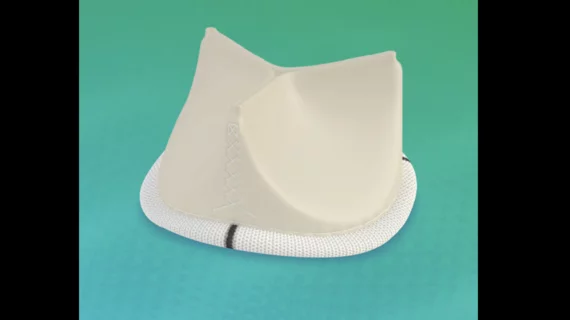FDA warns that early deterioration is possible with Abbott’s Trifecta heart valves
Abbott and the U.S. Food and Drug Administration (FDA) are warning healthcare providers about the potential risk of early structural valve deterioration (SVD) with Abbott’s line of Trifecta bioprosthetic heart valves. This includes the original Trifecta valve and the Trifecta GT, which are both designed to treat diseased, damaged or malfunctioning aortic heart valves.
The Trifecta valve, no longer marketed in the United States, first gained FDA approval back in 2011. The Trifecta GT valve was approved by the agency in 2016.
Overall, according to the FDA, there have been a series of reports of early SVD among these devices, particularly three to four years after implantation. This has led to surgical explant and transcatheter valve-in-valve interventions. In some instances, the patient died.
“The FDA routinely evaluates adverse event reports and published literature to monitor the safety and effectiveness of medical devices,” according to the FDA’s advisory. “The published literature includes a comparison of durability for Trifecta valves to other commercially available bovine pericardial valves across different timepoints post-implant. Outcomes from these studies suggest a higher cumulative incidence of early SVD and lower freedom from reintervention due to SVD associated with Trifecta valves.”
The FDA is recommending that healthcare providers follow this issue closely and discuss all risks and benefits with patients prior to making any treatment decisions. Patients who have received one of these valves should be monitored for any signs or symptoms of potential SVD, the agency added. This is not a recall; for now, the FDA has said it “will continue to monitor the literature and reports of adverse events related to the issue.”
Abbott also published its own letter to customers about the issue, noting that it is working closely with the FDA. The company also emphasized that all adverse reactions or quality issues should be reported immediately.

